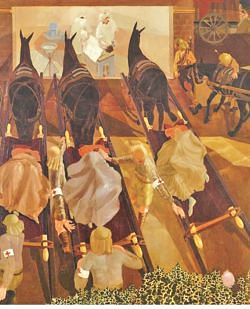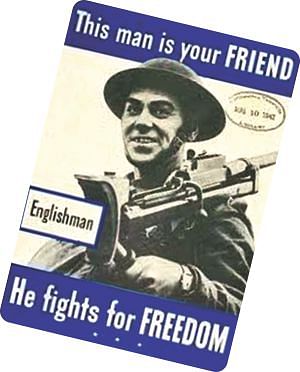The War in graphic art

War is a dirty business. Except for liberation wars such as the one we fought in 1971, where, at the end of bloodshed and violence, a 'terrible beauty' is born, all wars are often waged on false logic, manufactured lies and skewed ideologies. Looking back at the 'Great War', one wonders what justified its sanction or continuation for four years.
Exploring the narratives that the war has produced, one realises that the war was fought strongly on ideological grounds which, as we all know, never leave clear winners or losers. And as ideology has the power to mutate and change with time and exigency, the Great War was predestined to be followed by more devastating sequels. Ideology of the kind that guided the prewar and wartime policies spurred great passion, misplaced patriotism and false consciousness But when young men died and were maimed, cities were devastated, and country sides ravaged, questions were raised about the ethics of war. Countering the official propaganda, a school of painters soon emerged -- even while the war raged --

who considered the killings and violence evil, and found redemption in art. Their work reminded the world of the need to break the cycle of sin and redemption. The wars that followed, however, quickly drowned their voices, and proved that ideology, particularly the ideology of power, can overrule all objections.
The writer is Professor, Department of English, University of Dhaka.

 For all latest news, follow The Daily Star's Google News channel.
For all latest news, follow The Daily Star's Google News channel. 



Comments